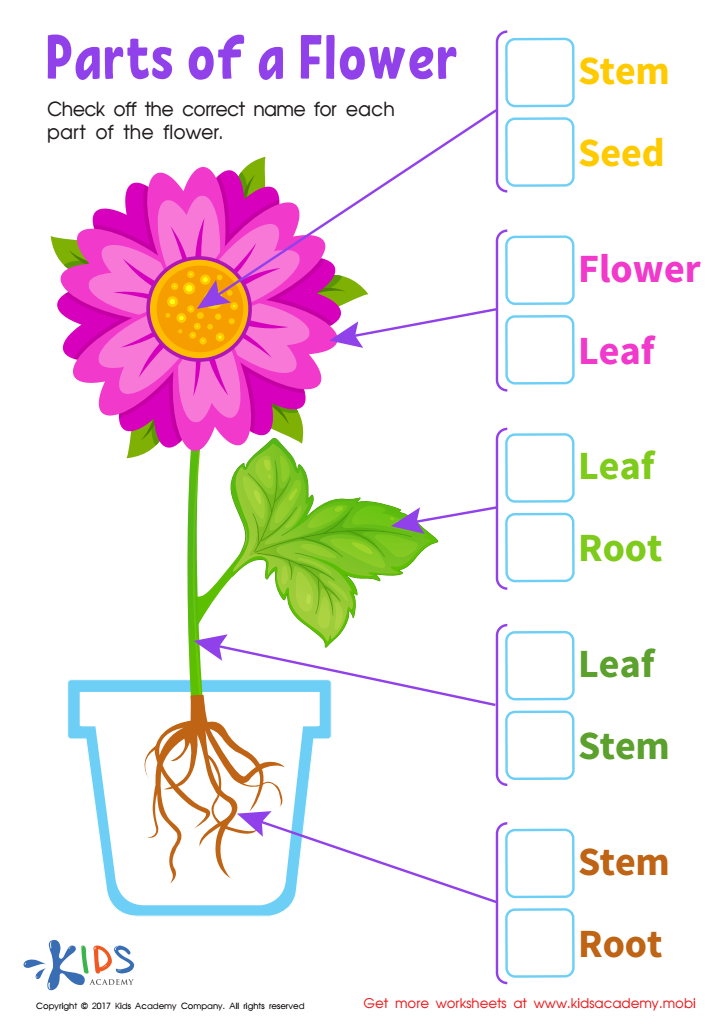Life Science Worksheets for Ages 7-9
3 filtered results
-
From - To
Discover our engaging Life Science Worksheets designed specifically for children ages 7-9! These interactive resources aim to spark curiosity about the natural world, enhancing young minds’ understanding of living organisms and their environments. Covering a range of topics such as ecosystems, plant and animal life, and the human body, our worksheets combine fun activities with essential knowledge. Perfect for both home and classroom use, these worksheets encourage observation, critical thinking, and creativity. With colorful illustrations and clear instructions, children will enjoy learning about life science while developing essential skills. Explore our collection today and make learning about life science an exciting adventure!


Parts Flower Printable


Herbivores Printable


Carnivores Worksheet
Life Science is a crucial subject for children aged 7-9, as it fosters a deep understanding of the natural world and the organisms that inhabit it. During this developmental stage, children exhibit a natural curiosity about various forms of life, and introducing them to Life Science helps satiate this curiosity with structured knowledge.
Studying Life Science enhances critical thinking and observation skills. Kids learn to ask questions about the environment, understand ecosystems, and explore concepts like growth, reproduction, and adaptation. These foundational principles nurture their sense of inquiry, encouraging them to explore the world around them.
Moreover, Life Science education promotes environmental awareness. As children learn about biodiversity, habitats, and the interdependence of life forms, they become more attuned to conservation efforts and the importance of protecting our planet. This sense of stewardship is vital not only for their personal development but also for a sustainable future.
Lastly, engaging with Life Science can inspire a lifelong interest in science and related fields. It lays the groundwork for future learning in biology, ecology, and environmental science, impacting their educational trajectory. Thus, prioritizing Life Science in early education is essential for nurturing informed, responsible, and curious young individuals.
 Assign to My Students
Assign to My Students















